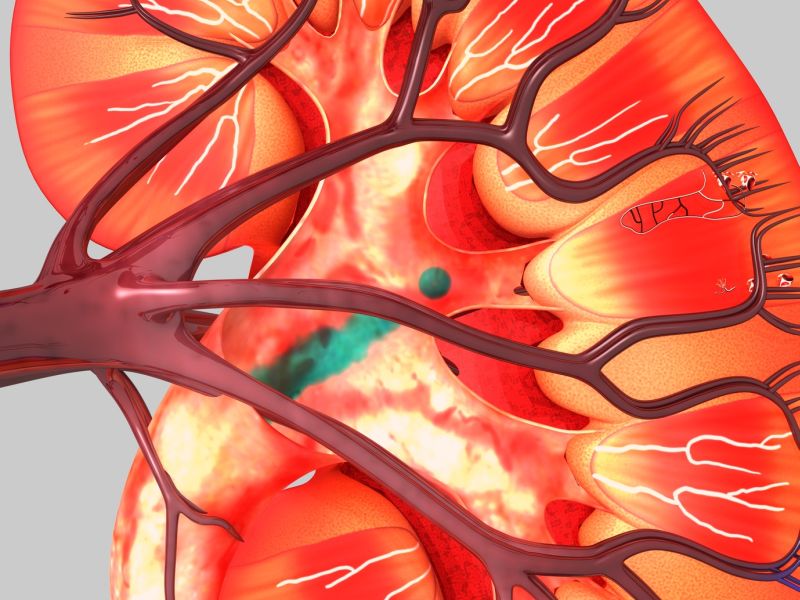- 10 Strategies to Overcome Insomnia
- Could Artificial Sweeteners Be Aging the Brain Faster?
- Techniques for Soothing Your Nervous System
- Does the Water in Your House Smell Funny? Here’s Why
- Can a Daily Dose of Apple Cider Vinegar Actually Aid Weight Loss?
- 6 Health Beverages That Can Actually Spike Your Blood Sugar
- Treatment Options for Social Anxiety Disorder
- Understanding the Connection Between Anxiety and Depression
- How Daily Prunes Can Influence Cholesterol and Inflammation
- When to Take B12 for Better Absorption and Energy
Kidney Woes Tied to Raised Cancer Risk, Study Finds


Kidney failure and having a kidney transplant may increase the risk for certain types of cancer, a new study suggests.
Poor kidney function and immune system-suppressing drugs may be behind this increased risk, according to Elizabeth Yanik, of the U.S. National Cancer Institute, and colleagues.
For the study, published in the Nov. 12 online edition of the Journal of the American Society of Nephrology, the researchers looked at data from more than 200,000 U.S. kidney transplant candidates and recipients.
Along with finding that these patients are at increased risk for certain types of cancer, the investigators also identified clear patterns of risk associated with different types of treatment. However, the associations seen in the study do not prove cause-and-effect.
The risk of kidney and thyroid cancers was especially high when kidney failure patients were on dialysis. The risk of non-Hodgkin lymphoma, lung cancer, melanoma and certain other types of skin cancers was highest after kidney transplantation. The increased risk after a transplant is probably a result of the drugs that suppress the immune system that patients have to take to prevent rejection of the new kidney, the study authors suggested.
“Our study indicates that the needs of individuals with end-stage renal disease, in terms of cancer prevention and cancer screening, will likely differ over time,” Yanik said in a news release from the American Society of Nephrology.
“Vigilance for kidney cancer and thyroid cancer may be of particular importance while these individuals are on dialysis. Extra consideration for screening for melanoma or lung cancer may be called for while taking immunosuppressant medications following a kidney transplant,” she concluded.
The findings show the need to closely monitor these patients for cancer, Yanik’s team said.
More information
The Urology Care Foundation has more about kidney failure.
Source: HealthDay
Copyright © 2026 HealthDay. All rights reserved.










